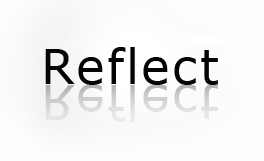 Nearly a month past the outstanding 2018 AGLS ‘Constitute’ in Pittsburgh, three things stick with me.
Nearly a month past the outstanding 2018 AGLS ‘Constitute’ in Pittsburgh, three things stick with me.
Foremost are ideas — and the example — presented by Christopher P. Long in his Saturday keynote address, “Practicing the Arts of Liberty.” He quoted (among others) James Baldwin: “I can’t believe what you say, because I see what you do.”
Long described Core Habits of the Arts of Liberty: attentive listening, ethical imagination, and critical discernment. These values must be realized by being lived — by becoming habits. He used examples from his experience as an academic administrator trying to collaborate in navigating large educational institutions through horrific human tragedies and crises.
http://cplong.org/2018/09/agls-keynote-practicing-the-arts-of-liberty/
https://twitter.com/i/moments/1043601980395016193?ref_src=twsrc%5Etfw
http://presentations.cplong.net/artsofliberty.html#/
http://humetricshss.org/category/blog/
Outside the catalog or Web page, in the real world of human experience, our values are not what we profess but what we live. All of our institutions say they are student-centered, value diversity, promote equity, and so on. Do we walk the walk?
One particular value I promoted in my session and am trying to live myself is to teach and administer from an ethic of care. It seems to me that something that unites best pedagogical practices is that they exhibit care and respect for our students as persons.
When we exert the effort to use high-impact practices — learning communities, undergraduate research, service learning — we give focused attention to our students. Caring about them, we use our ethical imaginations to include their perspectives in our reasoning about how to act, we act for the good of the student taking that perspective into account, and the student recognizes that we care for and respect her.
When I keep my word about returning papers on Tuesday, or check student understanding before moving on, or learn about their lives and interests beyond the classroom, or make assignments meaningful and transparent, I am caring, acting on behalf of my students, and they can recognize that I care and respect them.
There is a large philosophical literature on care ethics, and bit by bit an empirical literature is suggesting the connection I am making. For instance, the Gallup report, Great Jobs, Great Lives (2015) finds undergraduate research, mentorship, and other good practices pay dividends well beyond graduation. Engagement at work, thriving in life outside work, valuing education and connection with an alma mater all increase. The report notes, though, that it is “quality relationships, not simple interactions” that make a difference.
https://www.slideshare.net/bumbaugh/a-pedagogy-of-autonomy-and-care-a-manifesto-for-equity-in-education-and-engaged-citizenship
Kimberly Crews illustrated some of these points in a different way. She presented about the “Frontier Capstone” course for the general education program at the University of the District of Columbia (UDC). The UDC capstone uses team-based learning in yearlong experiences. Crucially, the work of the teams is meaningful and intentionally promotes both content learning and development of collaboration skills. Students receive regular and prompt feedback on their work. Groups are formed purposefully and engage with “real world” constituents. The course concludes with (what Ashley Finley calls) “a public demonstration of competence.” And students are accountable individually and collectively for the results.
In using these best practices, UDC is walking the walk of its motto: “Aspire, Accomplish, Take on the World.” The courses purposefully advance UDC’s mission to serve the city and its values of freedom, responsibility, and lifelong pursuit of learning. Students learn group process and communication skills, as well as how to define and direct a complex, long-term project. Moreover, in using assessment results to modify the experience — and communicating that to students — UDC is exhibiting respect and care.
https://cdn.filestackcontent.com/TqcMrcQK4C6c0GuxVeAD
https://www.agls.org/documents/CampusOnTheMove/UDC_CampusontheMove_May2018.pdf
These are just three of many intellectually and practically stimulating sessions we experienced at the 2018 AGLS Constitute. I look forward to being wowed again in 2019!
Source: oldfeed
